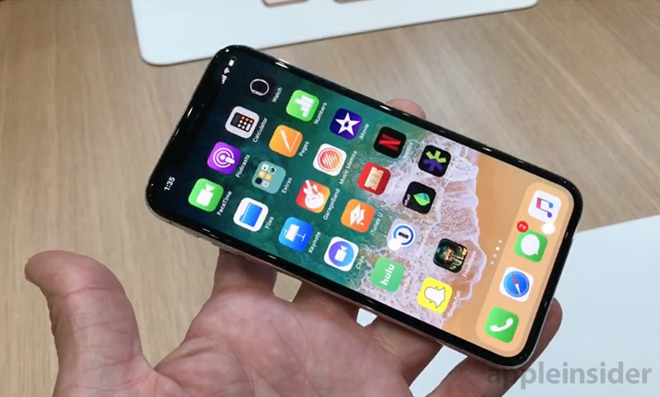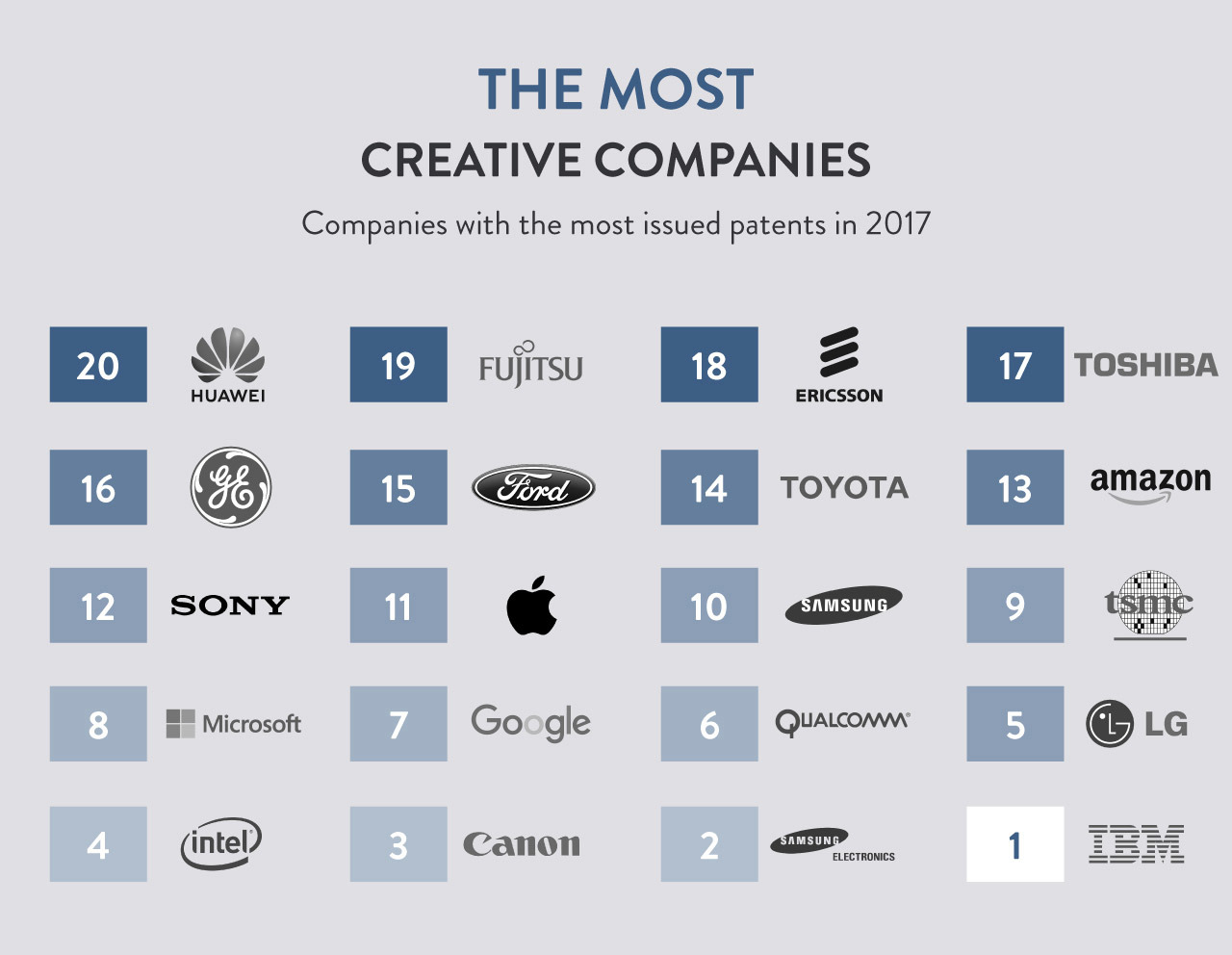While California is the top U.S. state for patents, Apple ranks behind IBM, Samsung and Intel in total patents issued last year according to a study and is therefore less innovative — but the examination is using questionable metrics to make that conclusion.
In honor of the awarding of the 10 millionth patent in June, an industrial equipment firm called Kempler Industries has released a set of statistics on the best places and companies for patent innovation. Apple ranks surprisingly low, but that's likely due to a methodology that values all patents issued equally.
According to the study, called Innovation Around the World: Where Patents Come to Life, California is #1 on the list of U.S. states with the highest number of patents per capita in the last five years, followed by Massachusetts, Washington and Minnesota. Last on the list is Mississippi, followed by Alaska and West Virginia. In terms of countries' patents per capita, also in the last five years, the U.S. is third, behind Taiwan and Israel.
In terms of "the most creative companies" — defined by Kempler as the companies that were issued the most patents in the year 2017 — Apple comes in 11th. IBM is first, with Apple suppliers Intel, LG, Qualcomm, and TSMC all ranking ahead of it. Samsung is also ahead of Apple on the rankings twice, listed as both Samsung and Samsung Electronics.
The sheer volume of patents granted to a company isn't a particularly useful way of ranking that company's level of innovation or creativity. Not all patents are of equal value or impact, and not all, or even most of them, even end up as part of products.
Also, a spot check performed by AppleInsider found a significant volume of the patents issued to IBM and other firms covering the same invention, with minor permutations of the titles and contents to differentiate the inventions.
The study does not assess the utility of the patents, nor their use in shipping products.
 Stephen Silver
Stephen Silver









 Andrew O'Hara
Andrew O'Hara
 William Gallagher
William Gallagher
 Andrew Orr
Andrew Orr
 Mike Wuerthele
Mike Wuerthele
 Bon Adamson
Bon Adamson
 Marko Zivkovic
Marko Zivkovic
 Wesley Hilliard
Wesley Hilliard
 Amber Neely
Amber Neely




-m.jpg)



12 Comments
I think in Edison's days counting patent probably had a direct correlation on how creative/innovative a company or person may be. Today I am not sue this is good metric since most patent never see the light of day as product. and many are just an improvement on what was done before. not something completely new.
As owner of several patents, and having consulted on patent issues for some years, I'm of the opinion that patent count means approximately nothing. The best ideas are protected by keeping them secret. For a small company with a great idea, one method of protection is to shop the idea around to potential competitors, under NDA, if they'll accept that. An NDA is much more easily defended than a patent.
And patents are like fence posts around an idea. You're pretty vulnerable if you're protecting your stuff with a single fencepost. Patents are expensive to get, so patent count may well be a better measure of wealth and attitudes towards patents than creativity.
Number of patents = innovation? Wouldn't that make those non-practicing patient trolls that sue Apple all the time the top dogs of innovation? No?
Analysts spending their dreary days dreaming up ways to measure businesses so they can put a nice ribbon on everything and present it to investors as something important? Or maybe just spinning things to deliver the goods to their sponsors? Take your pick.
For sure it's very inexact measure of innovation. Yet interesting tidbits. You see tech utter dominance over automotive and industrial (especially compared to prior decades). You see Amazon distinguishing itself, no Walmart. Ditto Google, no Facebook. And as nations go, half of Korea shows three in the Top 10.